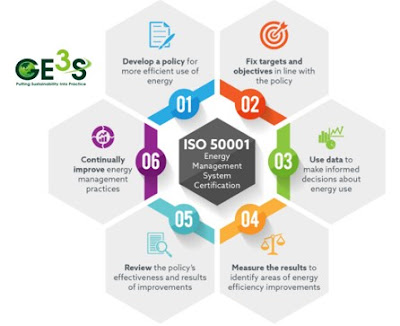Estimating carbon footprint using GHG protocol's guidelines
In order to prepare the carbon
footprint of a company most of the consultants are using greenhouse gas
protocol. GHG protocol is not for profit organization that sets the greenhouse
gas emission standards. it was recently found that more than 90% of the fortune
500 companies that are sending reports to CDP utilize GHG protocol for their
carbon footprint estimation. The GHG protocol provides globally most widely
used and accepted greenhouse gas accounting and managing standard.
The GHG protocol also provides
several tools that enables organization to develop their carbon footprint. The
GHG protocol has also started offering different training services. There are
multiple online learning courses on different aspects of GHG protocol and
carbon footprint.
GHG protocol standards are
designed to provide a methodology for organization, governments, individuals
and other entities to calculate their carbon footprint
through measurement and reporting. In the year 2016 more than 90% of the
fortune 500 companies responded to the CDP using the greenhouse gas protocol
either directly or indirectly. The GHG protocol has been providing a platform
for almost all the greenhouse gas reporting programs currently existing
globally. The GHG protocol standard have become so popular because of its high
reach two stakeholders and consultation that happens while developing these
guidelines. It is also supported by institutes such as WRI and WBCSD. The
greenhouse gas protocol has published several standards. These standards are:
1. Corporate Standard: The
greenhouse gas protocols corporate accounting and reporting standards provide
the details and the requirement along with guidelines for organizations and
corporates such as NGOs, government agencies, universities, banks etc who are
willing to prepare greenhouse gas inventory or the carbon footprint of their
operations. Then there is another guideline provide by GHG protocol.
2. GHG protocol for cities: This
is also called as global protocol for community-scale greenhouse gas emission
inventory. This guideline provides a methodology for monitoring accounting and
reporting the emissions or the carbon footprint from a community and a
city. The another standard is provided
below.
3. Mitigation gold standard: the
greenhouse gas protocol mitigation goal standard issues guidance on designing
national and state level mitigation goals. It also provides standard approach
for evaluating the progress and also on reporting the progress towards
achieving the goals on carbon reduction.
The next standard that has been developed by GHG protocol is provided
below.
4. Corporate Value Chain
Standard: This corporate value chain standards are mostly for scope 3 emission.
And it allows organizations to evaluate the entire supply chain emission impact.
And it also helps them to identify the area where they should focus on
activities that will result in reducing greenhouse gas emissions or the carbon
footprint .
5. Policy and action standard:
The greenhouse gas protocol policy and action standard issue a methodology and
approach for estimating the carbon footprint and effect because of the policy
and action that has been taken by mostly the government bodies.
6. Product Standard: The product
standard has been used widely to understand the lifecycle of greenhouse gas
emission of the product. It also helps one to understand where is the GHG
hotspot so that we can focus our effort in reducing GHG intensity of the
product. This is one of the ways how people can start manufacturing sustainable
products.
7. Project protocol: The
greenhouse gas protocol has developed this project protocol that is very
comprehensive. This project protocol helps in estimating the carbon footprint
or the greenhouse gas benefits of the project that result in reduction of greenhouse
gas emission.




Comments
Post a Comment